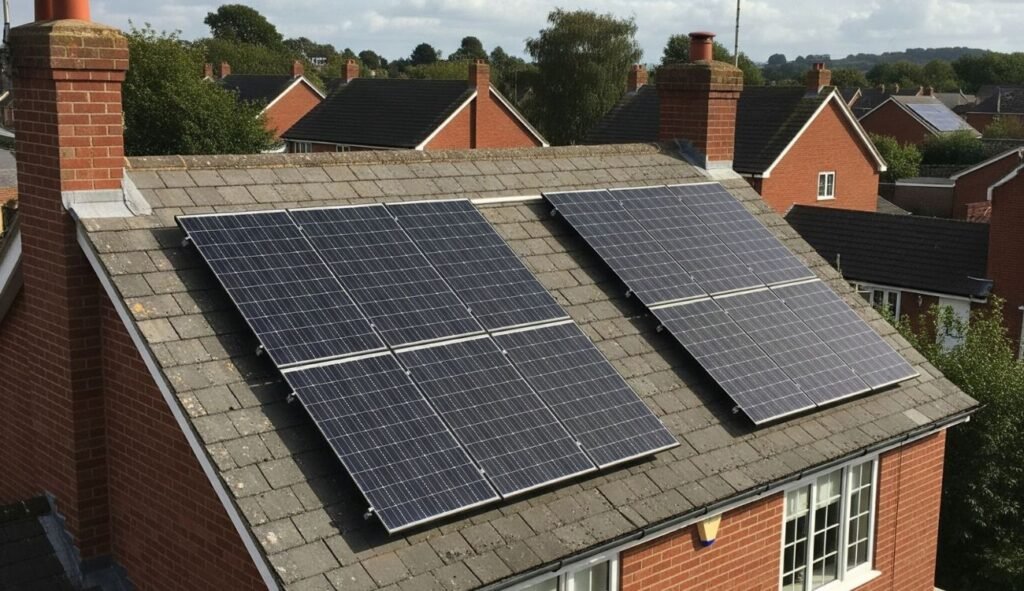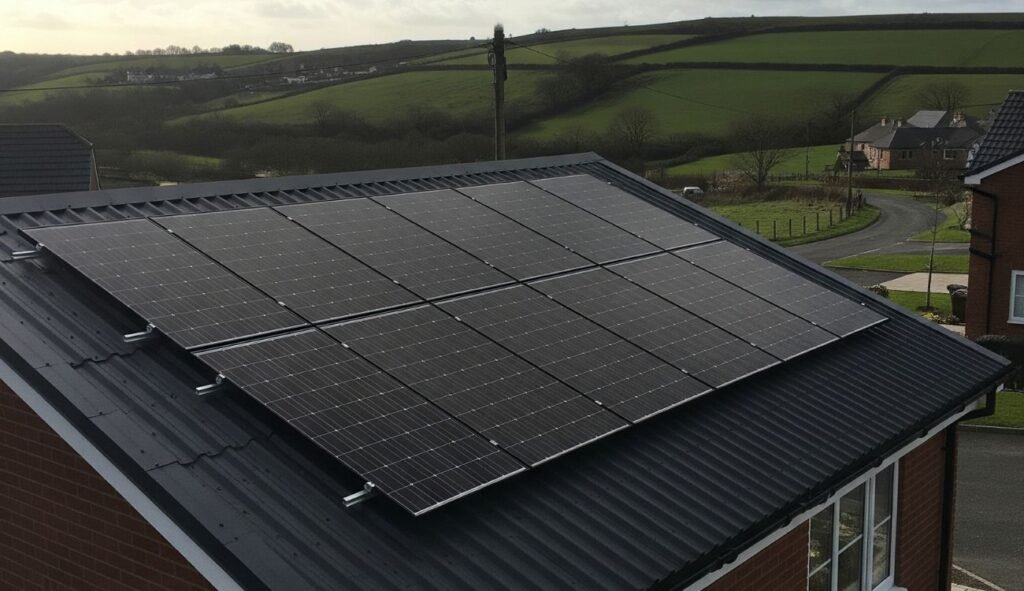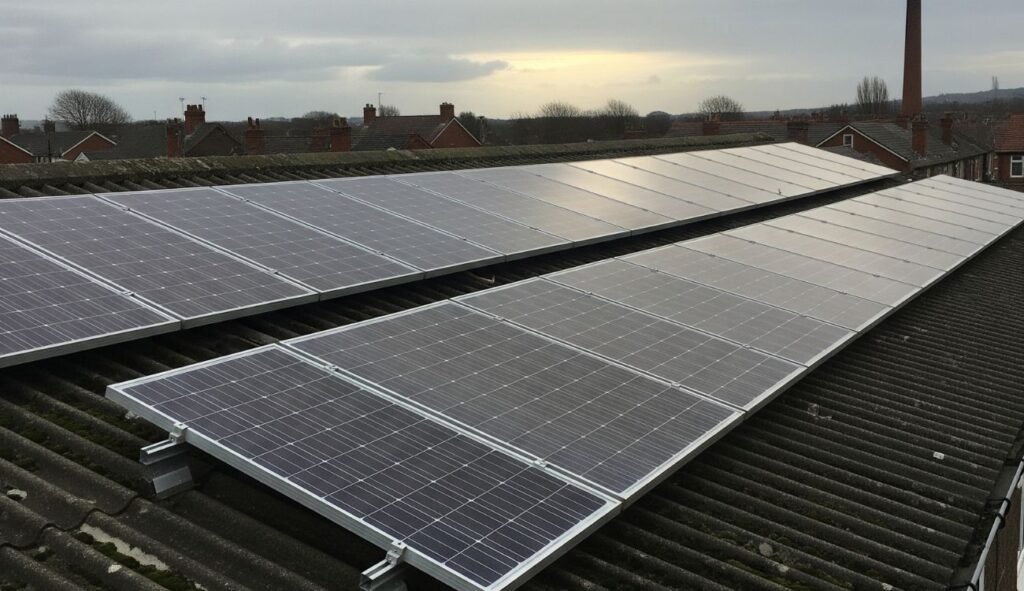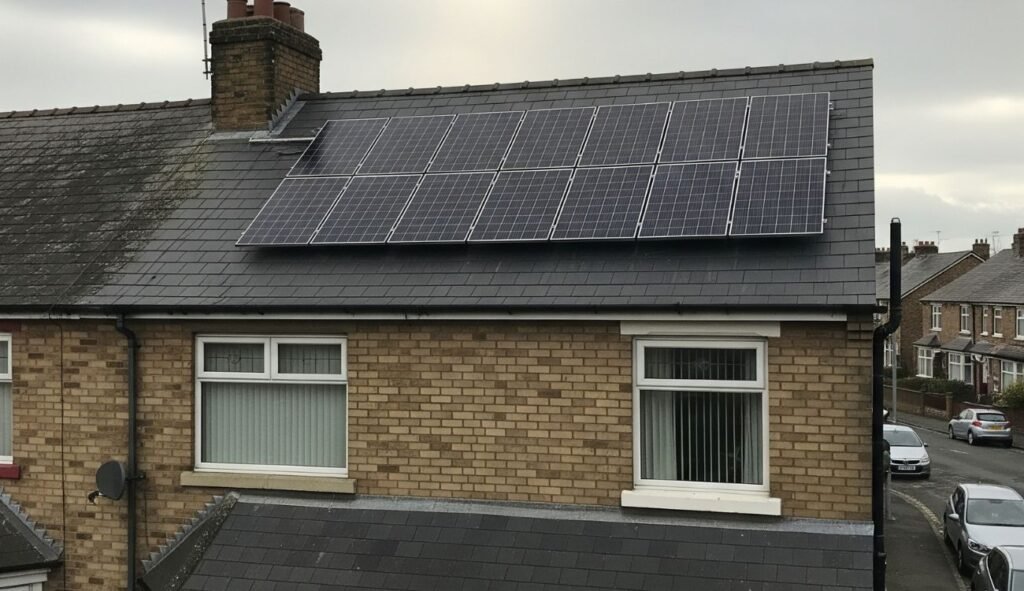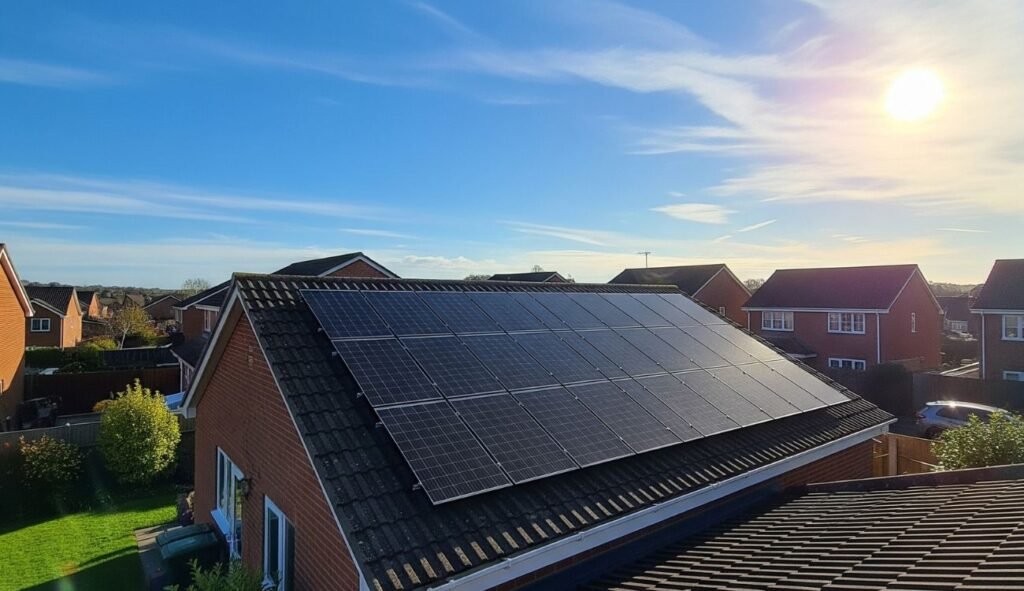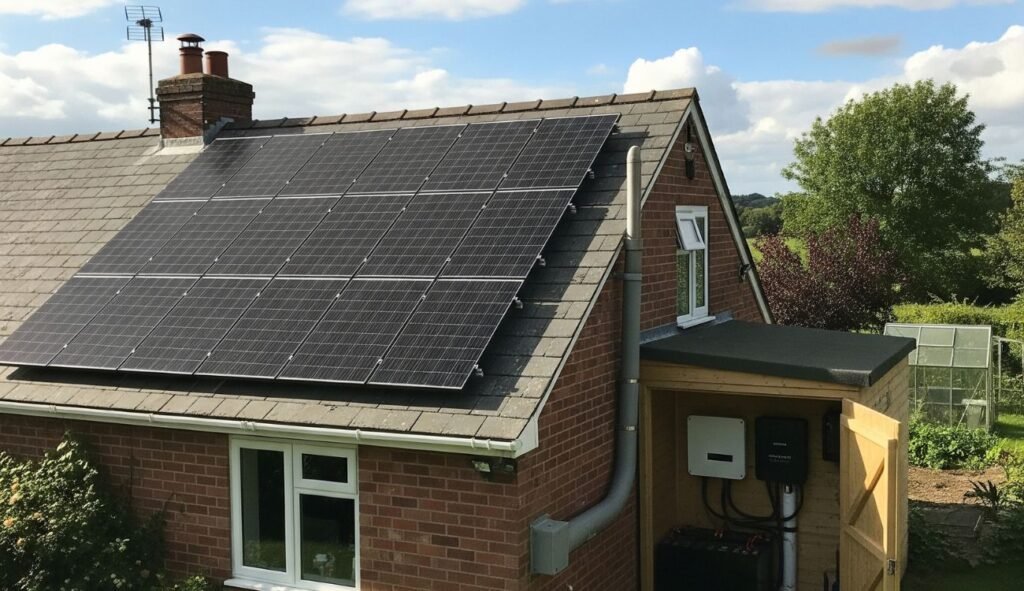With rising energy costs and a push for sustainability, UK homeowners, landlords, and commercial property owners are turning to solar power to cut bills and reduce their environmental impact.
Tax incentives for solar installation make this renewable energy solution more affordable, while additional grants and schemes provide further financial support.
This guide discusses the specific tax benefits available in 2025, alongside related grants, to help you make an informed decision.
For those in Tyne and Wear, Newcastle, or the wider North East, Future Heat offers expert solar panel installation services to help you take advantage of these savings. Request a free quote from Future Heat today and start your solar journey.
What Tax Incentives Are Available for Solar Installation in the UK?
Below, we outline the key tax incentives available in 2025.
0% VAT on Solar Panel Installation
According to the UK government, from April 2022 to March 2027, solar panels and battery storage qualify for a 0% VAT rate as energy-saving materials (ESMs).
This eliminates the standard 20% VAT, saving approximately £2,850 on a typical 4kW system with battery storage.
This relief applies to homeowners, residential landlords, and certain businesses like care homes or holiday lets. After March 2027, the VAT rate will revert to 5%.
| Tax Incentive | Details | Eligibility | Savings |
|---|---|---|---|
| 0% VAT Rate | No VAT on solar panels and batteries until March 2027 | Homeowners, residential landlords, certain businesses | Up to £2,850 for a 4kW system |
How Do Tax Incentives Benefit Homeowners?
The 0% VAT incentive reduces upfront costs by thousands, making solar panels more accessible. Homeowners can further boost savings by combining this with SEG payments or grants like ECO4 or HUG.
According to the Energy Saving Trust, a 3.5kW system can save £1,139–£1,800 annually on electricity bills, depending on usage and location.
For North East residents, Future Heat can help you navigate these benefits and install a system tailored to your home. Get a quote at Future Heat.
Maximise Savings with Combined Benefits
Pairing tax incentives with grants or SEG can accelerate your return on investment. For example, a homeowner eligible for ECO4 could install panels at no cost, save on VAT, and earn SEG payments, potentially recouping costs within 5–7 years.
What Tax Incentives and Grants Are Available for Landlords?
Landlords benefit from the 0% VAT relief for residential properties and can apply for ECO4 grants if tenants meet low-income criteria. .
SEG payments are also available for landlord-owned systems.
Table
| Incentive/Grant | Details | Eligibility | Benefits for Landlords |
|---|---|---|---|
| 0% VAT | No VAT on solar installations | Residential properties | Up to £2,850 savings |
| ECO4 | Grants for efficiency measures | Low-income tenants, landlord permission | Free or subsidised installations |
Landlords in Newcastle or the North East can contact Future Heat for expert installation and guidance on these benefits.
What Tax Incentives Are Available for Commercial Properties?
Tax incentives for commercial properties in the UK reduce the financial burden of solar panel installation by lowering tax liabilities.
These incentives offer significant savings for businesses and commercial property owners.
Annual Investment Allowance (AIA)
The Annual Investment Allowance (AIA) allows businesses, including commercial property owners, to deduct up to £1,000,000 of qualifying capital investments, such as solar panels, from taxable profits.
Available until March 2026, this incentive significantly reduces corporation tax or income tax for businesses investing in solar. If installation costs exceed the AIA limit, a 50% First Year Allowance (FYA) can be claimed for the excess, spreading tax relief over time.
According to the UK Government, this applies to most businesses, including sole traders and partnerships.
| Tax Incentive | Details | Eligibility | Savings |
|---|---|---|---|
| AIA | Deduct up to £1M from taxable profits | All businesses, until March 2026 | Significant tax reduction |
Full Expensing
Introduced in 2023, full expensing allows companies to claim a 100% tax deduction on qualifying solar investments in the year of purchase. This is particularly beneficial for large-scale commercial installations, as it reduces corporation tax liabilities immediately.
According to the UK Government, full expensing applies to incorporated businesses, making it ideal for companies with substantial solar projects.
| Tax Incentive | Details | Eligibility | Savings |
|---|---|---|---|
| Full Expensing | 100% deduction in year of purchase | Companies making capital investments | Reduces corporation tax |
Commercial property owners in the North East can rely on Future Heat for expert installation and guidance on accessing these tax incentives and schemes. Contact Future Heat for a bespoke quote tailored to your business needs.
What Grants and Schemes Support Solar Installation?
While tax incentives reduce tax liabilities, grants and schemes provide direct funding or payments to offset installation costs or generate income. These are separate from tax reliefs but complement them to make solar more affordable.
Smart Export Guarantee (SEG)
The Smart Export Guarantee (SEG), overseen by Ofgem, pays homeowners, landlords, and businesses for excess solar energy exported to the National Grid.
Rates vary by supplier, averaging 10.8p per kWh in 2025, with some offering up to 30p per kWh. Your system must be Microgeneration Certification Scheme (MCS)-certified and have a smart meter.
| Scheme | Details | Eligibility | Potential Earnings |
|---|---|---|---|
| SEG | Payments for exporting excess solar energy | MCS-certified systems, smart meter required | £100–£200/year for a 3.5kW system |
Energy Company Obligation (ECO4)
The ECO4 scheme, running until March 2026, provides grants to low-income or vulnerable households, potentially covering 100% of solar panel installation costs.
Eligible households typically have an Energy Performance Certificate (EPC) rating of D–G and use electric heating. Landlords can apply with tenant consent, ideal for social housing or private rentals.
| Grant | Details | Eligibility | Savings |
|---|---|---|---|
| ECO4 | Grants for solar panels and efficiency measures | Low-income households, EPC D-G, electric heating | Up to 100% of installation costs |
Home Upgrade Grant (HUG)
The Home Upgrade Grant (HUG), available until March 2025, offers up to £10,000 for off-gas-grid households in England with an EPC rating of D–G and household income below £36,000.
These grants cover solar panels and other upgrades, with WH:LG extending to 2028. Contact your local authority to apply.
How Can You Access These Tax Incentives and Grants?
Accessing tax incentives and grants requires a few steps:
- Verify Eligibility: Check criteria for ECO4, HUG, or WH:LG via your local authority or energy supplier. Tax incentives like AIA or full expensing require business tax filings.
- Use a Certified Installer: Choose an MCS-accredited installer like Future Heat to ensure compliance with grant and tax relief rules.
- Apply for Grants or SEG: Submit documentation (e.g., income proof for ECO4, MCS certification for SEG) to the relevant authority or supplier.
- Track Benefits: Monitor SEG payments via your smart meter and consult a tax professional for AIA or full expensing claims.
Future Heat in the North East can streamline this process.
Frequently Asked Questions (FAQs)
Yes, repairs to solar panels installed during the 0% VAT period (until March 2027) also qualify for the reduced rate, provided they’re performed by a VAT-registered installer Source: UK Government.
Yes, 0% VAT applies to listed buildings if the installation doesn’t require structural changes needing listed building consent. Always consult your local authority.
Most tax incentives, like 0% VAT and AIA, are UK-wide. However, Renewable Energy Generation Relief is primarily available in Scotland for commercial properties.
You must apply for SEG within 12 months of your system’s commissioning date, as certified by MCS, to avoid losing eligibility.
Our Verdict
Tax incentives for solar installation, such as 0% VAT, AIA, and full expensing, make 2025 a prime time for UK homeowners, landlords, and businesses to invest in solar power. These tax benefits, distinct from grants like ECO4 and HUG or schemes like SEG, reduce upfront costs and tax liabilities, enhancing affordability.
By combining these with grants and export payments, you can maximise savings and achieve a faster return on investment. For expert installation and guidance in Tyne and Wear, Newcastle, or the North East, Future Heat is your trusted partner.
Get a free quote at Future Heat and embrace a sustainable, cost-effective energy future.
Jamie Maguire is Managing Director at Future Heat Ltd, the UK-based renewable energy company specialising in heat pumps, solar panels and energy-efficient boiler solutions. He leads the company’s strategic vision to decarbonise homes and businesses across the UK by delivering innovative, sustainable heating and power systems. Jamie is passionate about shaping the future of energy, supporting communities and empowering teams of skilled engineers to deliver lasting value and carbon reductions nationwide.


